Can You Speak Over the Telephone. Как вести беседу по телефону - [3]
III. When you make a call from a coin-box telephone:
1. First drop a coin piece (or pieces) into the slot.
2. Lift the receiver and listen for dialling tone.
3. Dial your number.
4. On hearing ringing tone, which means that the line is free, wait until your call is answered.
IV. When you make a call from an extension phone:
1. Wait for the switchboard operator to say: “Number, please”, or “Switchboard operator”.
2. Give the number of the person you are calling.
The operator will either repeat your number to make sure she got it right, or just say: “Thank you” and try to put you through.
3. Wait until your call is answered.
You may use a telephone operated by a system known as STD (Subscriber Trunk Dialling).
1. STD is quicker and cheaper, so dial as many of your calls as you can.
2. Maintain in your Personal Telephone Directory an up-to-date list of dialling codes and/or number of people you are likely to call. This will save you time in the future.
3. When you dial, don’t pause too long between digits.
4. If the number you want is engaged, wait a few minutes before dialling again.
5. Ask for the extension number on calls to a private exchange, this will save you time. If the extension you want is engaged it will usually pay, on an STD call, to clear and try again later.
6. If you hear a recorded announcement telling you that the trunk lines are engaged, replace the receiver and try again later.
7. Answer your telephone promptly, giving your name or the name of the office or telephone number. This saves the time and helps the caller.
You can dial for yourself calls to most places in Europe and North America.
1. First dial the code of the country or the code for the place concerned and then the subscriber’s number.
2. If you wish to know the code for a place which is not shown in the Telephone Directory, ask the exchange operator.
3. When dialling to Europe or North America don’t pause more than two or three seconds between digits, especially the last few digits. The call may fail if you do. It helps to write down the whole code and number before you dial. You will often hear nothing for a half a minute or a little longer after dialling.
4. Do not replace the receiver before you have given the equipment time to connect the call.
You may sometimes hear a series of very rapid pips. This tells you that the automatic equipment is putting your call through and asks you to hold on.
5. Should you want the operator to get your call, or if you have any difficulty in dialling your number dial the operator and your call will be connected. The three minutes minimum charge applies on all calls made through the operator.
If the number you are calling is not on STD or ISD and you cannot dial the number direct, you have to make your call through the operator. When you book a trunk-call:
1. Give the country, the place concerned and the number you want your call to be connected with.
2. Say what kind of call you want to book.
3. Indicate the duration of your call if possible.
4. Give your name and telephone number.
Trunk-calls can be as follows:
1. ADC calls. ADC, which stands for “advise duration and charge”, means that when the call is finished the operator rings you back to tell you how long the call was and how much it cost.
2. Personal calls. They are made to a particular person. A fixed charge is made for the service, but you do not pay for the time taken to find the person. If he isn’t there, the call is tried again later without further charge.
3. Station-to-station calls. They are put through to the number you give.
4. Transferred-charge calls (or collect calls). They are paid for by the person receiving the call rather than the caller.
5. Government calls (or state calls). They are usually put through with a minimum delay. Only governmental offices, embassies and trade missions are entitled to book such calls.
The charge for a trunk-call is based on the duration of the call and the distance between the charging centres.
Using a telephone directory is a simple procedure for those who live in small towns. Because in larger cities the use of a large directory is somewhat more difficult, knowing the organisation of a city directory may prove helpful.
The following information may be obtained on the front page of most alphabetical directories:
Number of the fire department, police, or ambulance.
Business office of the telephone company.
Telephone repair service.
Assistance, for help, in making a call.
Information, to obtain numbers not in the directory.
Long distance, to make a long-distance call.
Most directories contain space on the first page in which to write numbers that you call frequently. On the second and third pages you usually find a description of the many services offered by the telephone company, as well as other helpful information such as Speaking Clock, Weather Forecast, Motoring Information Service (for weather and traffic conditions on the roads). The main section of the alphabetical directory is the part that you use most frequently.
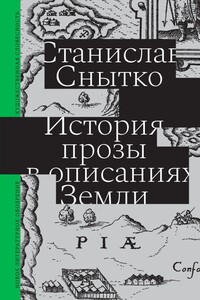
«Надо уезжать – но куда? Надо оставаться – но где найти место?» Мировые катаклизмы последних лет сформировали у многих из нас чувство реальной и трансцендентальной бездомности и заставили переосмыслить наше отношение к пространству и географии. Книга Станислава Снытко «История прозы в описаниях Земли» – художественное исследование новых временных и пространственных условий, хроника изоляции и одновременно попытка приоткрыть дверь в замкнутое сознание. Пристанищем одиночки, утратившего чувство дома, здесь становятся литература и история: он странствует через кроличьи норы в самой их ткани и примеряет на себя самый разный опыт.
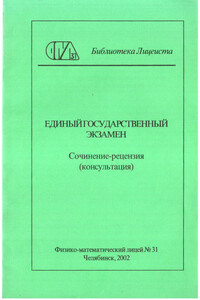
В сборнике представлены теоретические сведения о семантической структуре слова, о структуре текста, о типах речи, подобраны упражнения для анализа текста, также образцы рецензий на фрагменты рассказов из КИМов ЕГЭ.
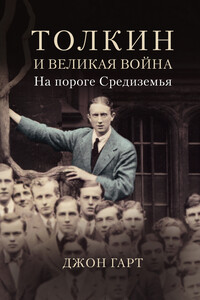
Книга Дж. Гарта «Толкин и Великая война» вдохновлена давней любовью автора к произведениям Дж. Р. Р. Толкина в сочетании с интересом к Первой мировой войне. Показывая становление Толкина как писателя и мифотворца, Гарт воспроизводит события исторической битвы на Сомме: кровопролитные сражения и жестокую повседневность войны, жертвой которой стало поколение Толкина и его ближайшие друзья – вдохновенные талантливые интеллектуалы, мечтавшие изменить мир. Автор использовал материалы из неизданных личных архивов, а также послужной список Толкина и другие уникальные документы военного времени.
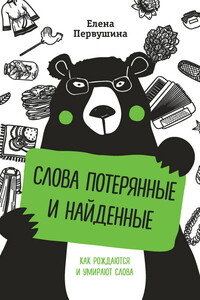
В новой книге известного писателя Елены Первушиной на конкретных примерах показано, как развивался наш язык на протяжении XVIII, XIX и XX веков и какие изменения происходят в нем прямо сейчас. Являются ли эти изменения критическими? Приведут ли они к гибели русского языка? Автор попытается ответить на эти вопросы или по крайней мере дать читателям материал для размышлений, чтобы каждый смог найти собственный ответ.
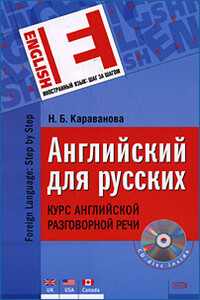
Предлагаемое издание – учебник нового, современного типа, базирующийся на последних разработках методики обучения языкам, максимально отвечающий потребностям современного общества.Его основная цель – научить свободно и правильно говорить на английском языке, понимать разговорную речь и ее нюансы.Отличительными чертами учебника являются:· коммуникативная методика подачи и закрепления материала;· перевод на английский язык лексики и диалогов учебника носителем языка;· грамматические комментарии, написанные на основе сопоставительного изучения языков и имеющие также коммуникативную направленность.Учебник предназначен для студентов, преподавателей, а также для всех, кто хочет научиться свободно общаться на английском языке.

Доклад С.Логинова был прочитан на заседании Семинара 13 декабря 1999 года, посвященном теме «Институт редакторов в современном литературном процессе»).От автора: статья написана на основе фактов, все приведённые имена и фамилии подлинные. Случайных оскорблений здесь нет.